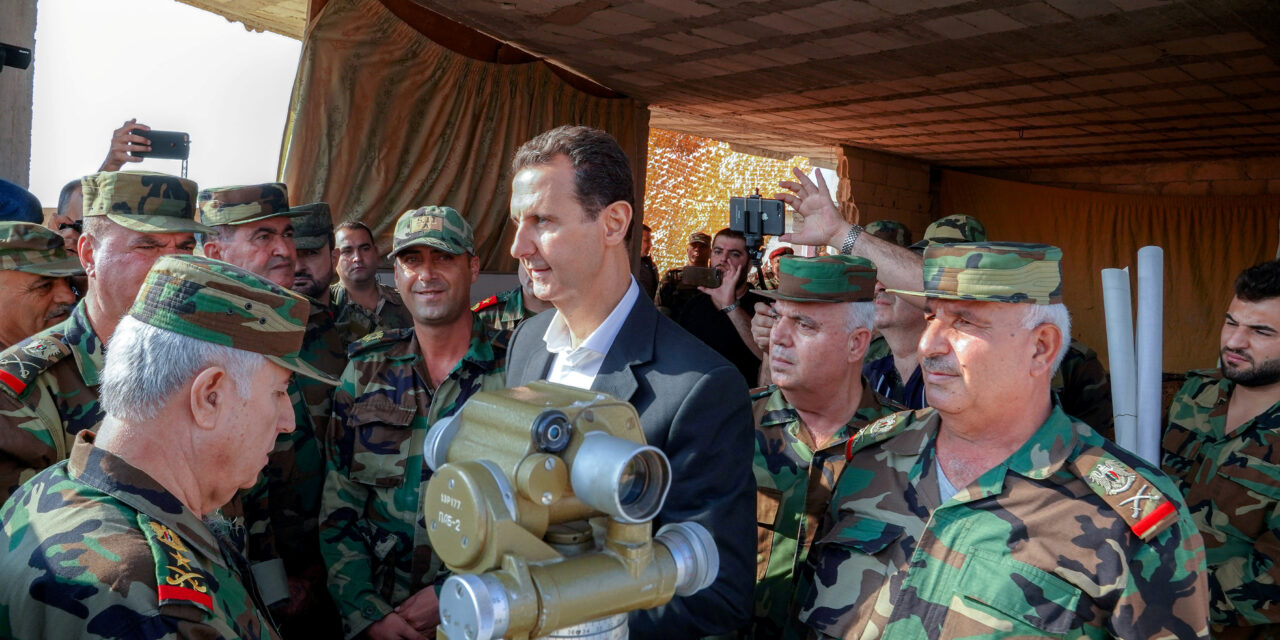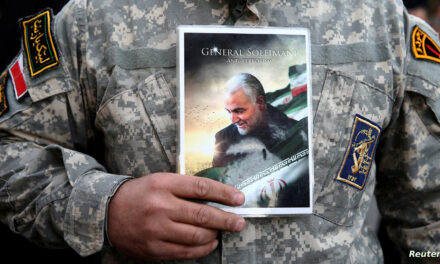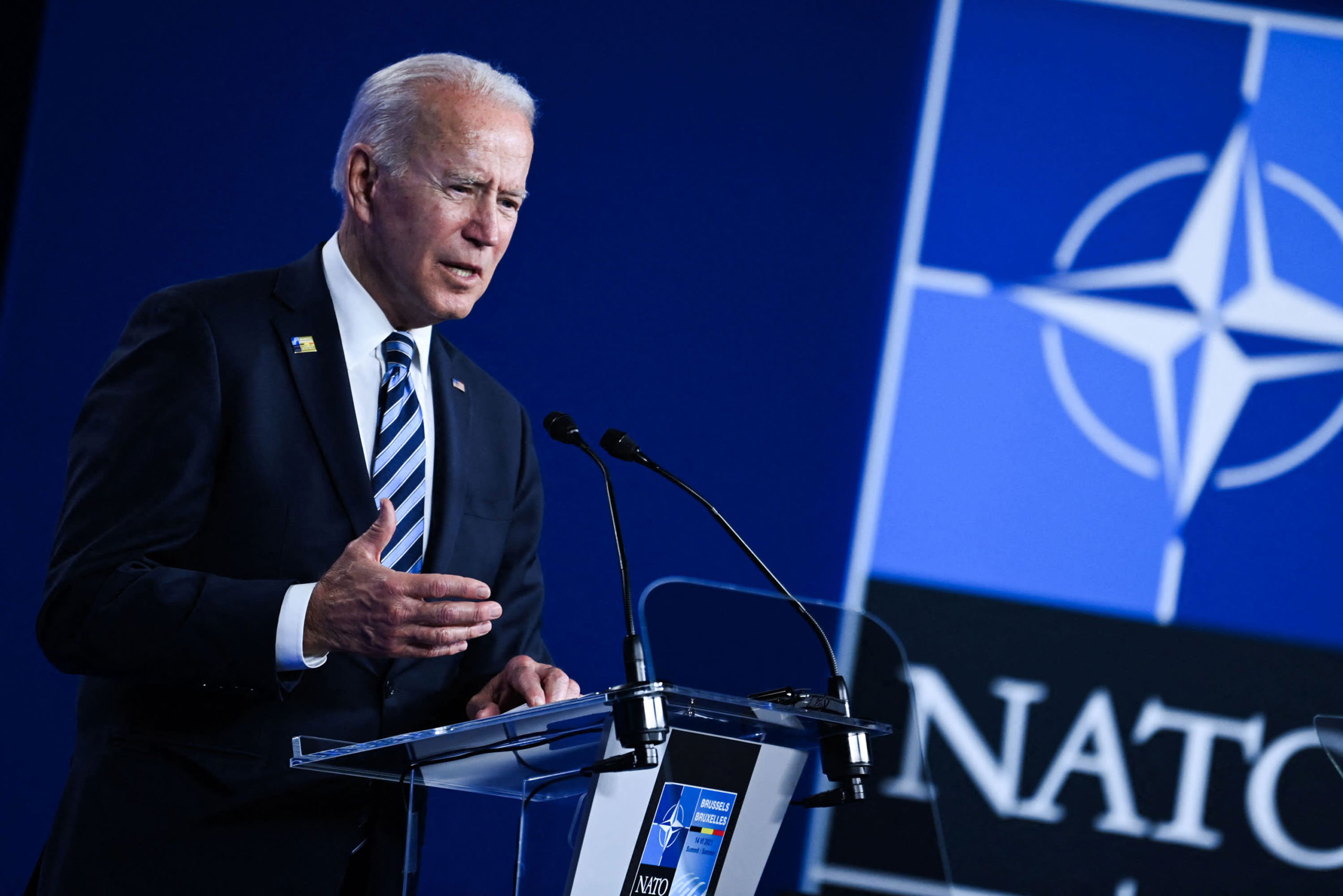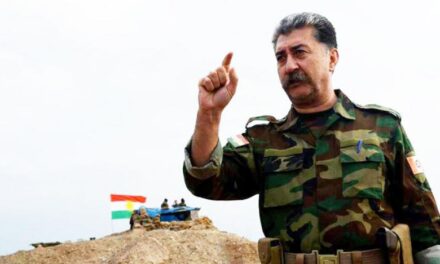The fate of about 100 officials and officers of the ousted Syrian regime who fled to Iraq is shrouded in mystery, amid the Iraqi authorities and pro-Iranian militias’ secrecy about any information related to them.
Iraq received 2,493 soldiers, officers and officials from the regime of ousted President Bashar al-Assad through the Syrian Al-Bukamal border crossing on December 7 and 8.
The Joint Operations Command announced on December 19 the return of 1,905 Syrian officers and personnel and their handover to a protection force from the Syrian side through the Al-Qaim border crossing.
This was preceded by another handover operation that included dozens of former employees at the Al-Bukamal crossing, who also fled during the fall of the Assad regime.
However, an Iraqi official in Anbar Governorate told Al-Hurra, preferring not to reveal his name for security reasons, that “a group of Syrian officers refused to return to their country under the pretext that there would be a danger to their lives when returning the other soldiers and ranks, so they were immediately transferred from Anbar to Baghdad.”
However, the same source did not confirm their settlement in Baghdad or the destination to which they were later transferred.
To find out the fate of the officers and officials who refused to return to their country and how the Iraqi government is dealing with this file, Alhurra contacted both the official spokesman for the Commander-in-Chief of the Armed Forces, Sabah Al-Numan, and the official spokesman for the Ministry of Interior, Brigadier General Muqdad Miri, but they did not make any statements about the file on the pretext that it is not within their jurisdiction.
Also, the official spokesman for the Iraqi government, Bassem Al-Awadi, and the spokesman for the Joint Operations, Major General Tahseen Al-Khafaji, did not answer Alhurra’s questions regarding these officers and their file.
Last Tuesday, the Iraqi Ministry of Interior denied granting residency to officers and leaders of the ousted Syrian regime.
The spokesman for the Ministry of Interior, Brigadier General Muqdad Miri, said in a statement: “Some social media sites circulated news about Iraq granting temporary residence for humanitarian reasons to dozens of officers and leaders of the former Syrian regime army, who sought refuge in Iraq. While we deny this news in its entirety and in detail, we emphasize the importance of obtaining information exclusively from its official sources.”
Alhurra’s follow-up of the file of the officers and leaders of the Syrian regime who refused to leave Iraq for their country revealed that after they were transferred to Baghdad under strict security measures, they were divided into several groups, one group of whom traveled to Russia, Belarus, and a Gulf state.
A second group of them was transferred to a residential complex in Baghdad, while another group joined the “Ashraf” camp in Diyala Governorate, northeast of Baghdad, along with militants from the Fatemiyoun and Zainabiyoun militias.
The elements of these militias were in Syria before they also withdrew to Iraq after the fall of the Assad regime, while others, including leaders and officials, settled in the city of Najaf and the town of Jurf al-Sakhar in Babil Governorate.
The majority of the Syrian officers and leaders present in Iraq are of high ranks (starting from brigadier general), and they are leaders and officers of the Fourth Division, which was led by Maher al-Assad, the brother of the deposed president Bashar al-Assad, in addition to officials, intelligence officers and advisors.
“Black Box”
The Iraqi political expert, Omar Abdul Sattar, indicates that the remaining Syrian officers and employees who sought refuge in Iraq joined an operations room established by Iran after the fall of Assad.
According to Abdul Sattar, this operations room aims to mobilize the Syrian interior and activate sleeper cells of its loyalists against the new Syrian administration, whether on the coast, in Homs or in other Syrian regions that are witnessing movement by remnants of the former regime.
Abdul Sattar told Alhurra that “Iran runs this room, and a number of these officers participated in the meeting organized by the Revolutionary Guards in the presence of Iranian officers and Iraqi militia leaders a few days ago in Najaf.”
He pointed out that the Iraqi government and the Iranian Revolutionary Guards are keeping the names and information of the remaining officers in Iraq, who number 93 officers and officials secret.
The list of Syrian officials and officers who entered Iraq last December includes senior officials in the ousted regime who arrived in Iraq via Baghdad International Airport.
Security and strategic expert Ahmed Al-Sharifi believes that the Iraqi government’s denial of granting the remaining Syrian officers and officials residency is not sufficient to confirm that they left Iraq.
Al-Sharifi considers the Syrian officers and officials who refused to return to their country to be the black box for many of the events that took place in Syria, especially the issue of cooperation between Iraq and Syria through these parties.
Al-Sharifi added to Al-Hurra website that “the issue of the movement of these officers is a maneuver for a black box that hides many secrets about the cooperation of the Iraqi factions with Syria, Iran and Iraq, and how the cooperation was going at that time.”
He pointed out that the officers will not return to Syria and that financial resources can be provided to them from the Popular Mobilization Forces budget.
Al-Sharifi notes: “Since Iraq has been an incubator for them, and if it is proven with evidence that they are in Iraq or have left it, it will be difficult to normalize relations between Iraq and Syria.”
He pointed out that this file is among a number of files and papers that could hinder the issue of normalizing relations between the two countries, especially in light of the current Iraqi government, which is the government of the Coordination Framework, in which the factions loyal to Iran represent the backbone of the parliamentary majority.





